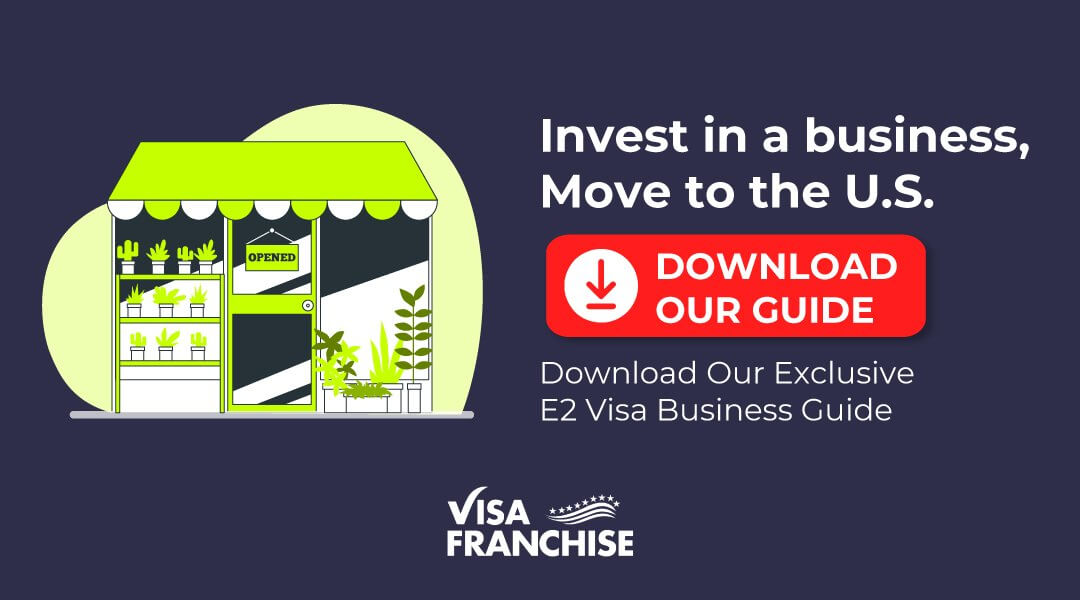The most international city in the U.S., New York City, is full of ethnic business. Especially in the restaurant industry, where every nationality’s cuisines have representative places to eat.
Fueling the growth of foreign fare restaurants is the E-2 investor visa.
Immigrants with a reasonable amount of capital and a solid business plan to start a new company, or buy a business or franchise, can apply for the E-2 visa. This depends on their nationality(ies) and whether the U.S. has an investor treaty with their country(ies).

A Successful Business is an Opportunity to Resid in the U.S

The decision of whether to grant the visa is based on the probability of success of that business. This determination takes into account how detailed and innovative the business plan is. Also, the demand for the business’s products and/or services. In addition, the amount of funding required to get a business up and running until it begins to generate revenue sufficient to lead to its growth and success is very important.
Here are some things to keep in mind about this particular visa:
The E-2 visa gives the applicant 5 years to form a successful business in the U.S.
The continuation of the individual’s legal stay in the U.S. is based upon the success of the business. If the business fails, the investor loses the visa. And the holder must return to his or her country of origin. They may also apply for a change of status to another visa or a green card based on another venture, job offer, or direct family relationship with a U.S. citizen or resident.
The good news is that as long as the business remains successful, the visa holder can continue to live in the U.S. indefinitely. The visa is renewable every five years as long as the company remains viable.
Only an individual with experience and/or interest in running a small business should apply.
While the visa may accomplish an important goal of family reunification, it should not be used by someone who is not serious about running a business or lacks an entrepreneurial mindset. There are other potential means available for someone just looking to invest money and come here to stay with relatives, such as the EB-5 visa.
The E-2 is best used by a person who wants to work hard and do what it takes to maintain a profitable business. If they lack experience, sometimes a franchise model is best. They are instructed and guided by the corporate entity which controls the brand and maximizes the probability of success.
The application process is relatively simple.
Many visa applications have a mandatory two-part process:
- The petition must first be reviewed in the U.S. by immigration officials.
- If approved, an applicant must apply for the visa itself at his or her corresponding U.S. embassy.
In contrast, the E-2 visa can be applied for directly in U.S. embassies vis-a-vis consular processing, a process that is quicker and less expensive. Consular processing can also reduce the chance of denial (only 1 chance versus 2).
The application can also be applied for if the applicant is already in the U.S. through a change of status.
E-2 applicants are only eligible if they come from certain nations.

E-2 investor visas are only available to citizens from countries that have bilateral investor treaties with the U.S.
Citizens of the BRICS countries,
- Brazil,
- Russia,
- India,
- Indonesia,
- China, and
- South Africa,
are not currently eligible for the E-2 visa. In those cases, the alternative may be EB-5 or other categories. However, it is important to point out that if someone possesses dual or multiple nationalities, they can qualify based on just one nationality which has an existing treaty. For example, Israelis, Portuguese, and Greeks (to name just a few) don’t qualify, but if they have any other treaty country nationality as well, they do.
In many situations, the E-2 visa can be a win-win situation for all involved. It leads to more businesses, which not only add to the cultural fabric of the nation in general but also create tangible jobs and improve the U.S. economy. Nowhere is that more abundantly clear than in the Big Apple and its vibrant restaurant scene.





